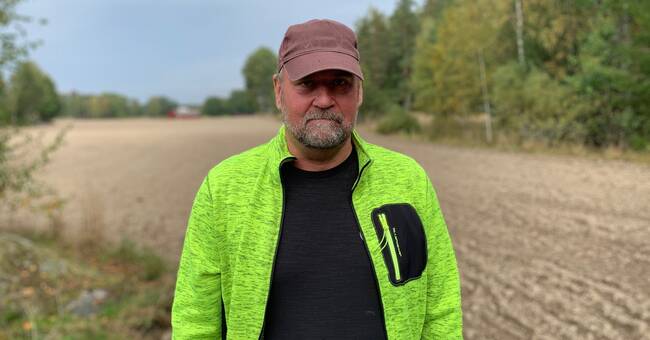The Swedish wild boar population is increasing throughout southern Sweden and is causing problems for many farmers who are affected by trampled fields and eaten crops.
One of those affected is the farmer Clas Rydberg, who runs a family farm between Katrineholm and Nyköping, where he grows grain, among other things.
He estimates that about ten percent of a full harvest is wasted due to wild boar damage.
- I am starting to think more and more about whether to fence in the whole yard.
If I am not out guarding the fields in the summers, there will be one hundred percent damage to certain fields, there will be nothing left to thresh, he says.
Consequences for food production
The Swedish Farmers' Association, LRF, points out the problem in a new report and believes that the costs of wild boar damage in agriculture amount to SEK 1.1 billion per year.
The figures come from the Swedish University of Agricultural Sciences, SLU, and are based on how large the wild boar population was in 2015. The problem also risks having major consequences for Swedish food production.
- The damage is very severe for the individual farmer.
Wild boars are also difficult to hunt.
They are nocturnal and reproduce very quickly, says Anders Wetterin, expert in hunting and game within LRF.
To reduce the problem, LRF wants wild boar hunting to increase and the feeding of game in forests and land to be regulated.
It is also emphasized that the current hunting legislation from 1987 must be reviewed.
Changes in the law must be evaluated
The Swedish Hunters' Association agrees with LRF that wild boars cause problems and that the tribe must be regulated.
Anders Nilsson, who works as an assistant national hunting care consultant at the Swedish Hunters' Association, believes, however, that several changes in hunting legislation have already been made and that the results of this must now be evaluated.
At the same time, he emphasizes the importance of wild boar being hunted in an ethically defensible manner.
- The shapes we use must be neat.
We can not behave like pigs against wild boars, he says.

